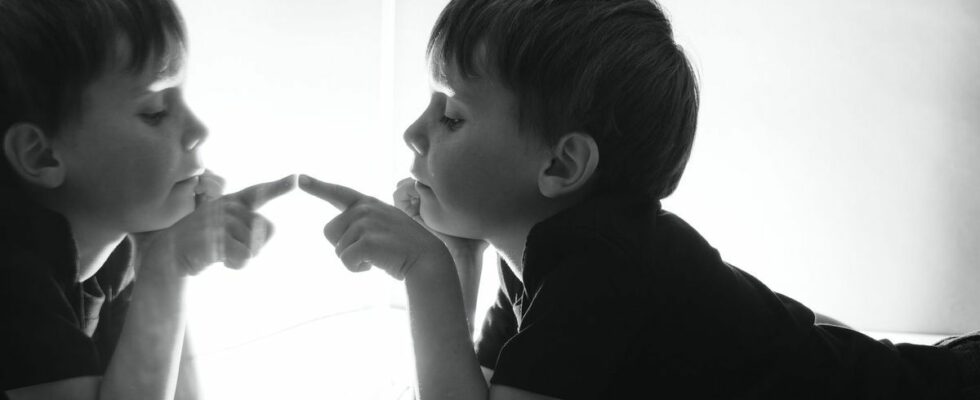Published on
Updated
Reading 3 min.
If it is neither desirable nor relevant to put your child in a box, a psychologist specializing in child trauma discusses certain signals that can develop into a narcissistic personality. Detecting them could thus make it possible to bring more empathy into one’s daily life and one’s development.
Personality disorders are usually diagnosed in adulthood. Why? Because before that, children and adolescents are still developing, evolving at their own pace and do not yet have consistent behavioral models. However, some children may have personality traits that can raise questions. And in a self-oriented society that breeds narcissism, an American psychologist draws our attention: signals in our children could evolve towards a narcissistic personality. Signals that we must be aware of in order to gently rectify the situation.
He refuses to acknowledge his mistakes
Children, like adults, have difficulty admitting when they are wrong, which is developmentally normal. But when these tendencies become rigid, with an absolute refusal to admit any negative action on their part, it can be a signal. The child who can develop towards narcissistic tendencies can thus present himself as if he never felt at fault in any situation, refusing to assume his responsibilities, even when proof is provided. Likewise, he simply doesn’t believe he can change and gets angry when asked to take stock of his behavior.
He seems to have a lack of empathy
Children who seem unable to understand other people’s emotions in a consistent way, across all areas of their lives, may have red flags.”The lack ofempathy looks like a desire to hurt others without reaction; There might also be times when the pain of others actually gives these children a sense of satisfaction.” says Jamie Cannon in Psychology Today.
Yet a child who cannot recognize, name, and understand the impact of emotions on others will have difficulty maintaining friendships and, ultimately, relationships of any kind.
Egocentric behavior when another is highlighted
Most children appreciate it when we pay them attention, whether it’s for something they’ve done, progress, a drawing…”But a child who is likely to develop narcissistic traits will not only want to be in the spotlight, he or she will also adopt behaviors selfish when the spotlight turns to someone else.” These selfish behaviors which can look like criticism, denigration of others, and a strong attempt to refocus attention on themselves.
A great intolerance towards the mistakes of others
Because of a belief that they are superior, children with narcissistic tendencies can often be intolerant of any perceived weakness in others. They may relentlessly tease their peers and focus on others’ flaws. In adults, narcissists are thus unforgiving for even the smallest misstep. This is something that should be reframed in their child.
Intolerance towards the point of view of others
Of course, any child can feel frustrated or annoyed when peers express views that are markedly different from their own, but they can usually agree to disagree and go about their day. In contrast, children with emerging narcissistic traits tend to impose their views on others with no respect for alternative opinions.This might look like persistent attempts to ‘prove’ to others that their ideas and views are wrong, or irritation when someone disagrees with their worldview.”
Disproportionate anger
Finally, according to the psychologist, children with narcissistic tendencies may react to uncomfortable or embarrassing situations with outbursts of anger that are disproportionate to what is happening. They may lash out at others without a hasty trigger, react to their own overwhelming emotions with explosive anger, and become angry at small provocations.
All these signs are not enough for a diagnosis
By reading these various signs, you may have said to yourself that your child has already reacted like this. This is undoubtedly the case! And that’s completely normal. The psychologist reminds that many of these behaviors can occur in isolation throughout childhood and for many reasons, and that it is not a matter of concern.
“But it’s critical to keep in mind that these behaviors are red flags when they occur in consistent, repetitive patterns” she emphasizes.
Likewise, children who may develop narcissistic attributes will not only exhibit one or two red flags; they exhibit several of them, and these behaviors systematically interfere with a happy and healthy life. In this case, it is time to react and lead your child towards more empathy.
“Being able to recognize this type of behavior is the first step in making the necessary changes so you can stop it before it develops into a personality disorder.”
